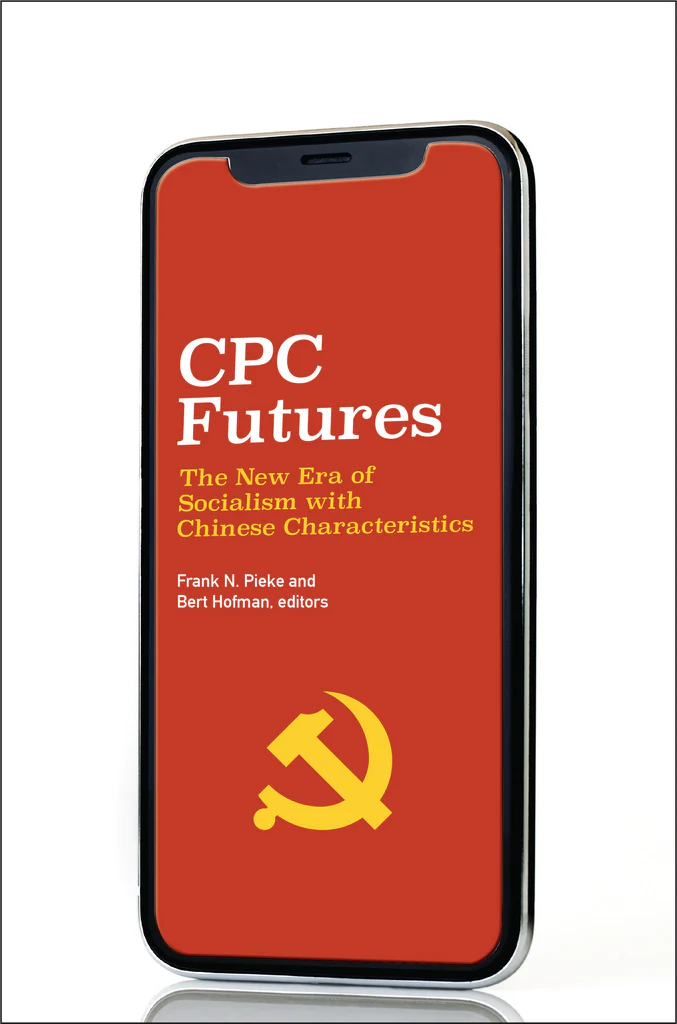Edited by Frank N. Pieke and Bert Hofman
What will the upcoming 20th Congress of the Communist Party of China (CPC) bring, and what will the next decade of CPC rule look like? Who will rule China and what future do they envision for the Party and China? In this volume, the East Asian Institute in Singapore brings together an exceptional team of world-leading China experts from Asia, the United States, Europe and Australia to set out the future implications of trends in CPC politics and governance in CPC General Party Secretary Xi Jinping’s “New Era.”
The essays collected in this volume bring together cutting-edge research and insights into China’s economy, society, politics, military and international relations targeted at a professional audience in government, business, the media, NGOs and universities. The book is distributed Open Access under a Creative Commons license, and sold in print editions in Asia.
Read Online or Download the PDF
Front Matter Download
Introduction Download
by Frank N. Pieke and Bert Hofman
The 20th Party Congress in the fall of 2022 will be a pivotal moment for the
Communist Party of China (CPC). The decisions at the Congress are relevant not only to China,
but also for the global economy and for the shape of the world order as well.
Inner-party politics is complex and opaque for most outside observers, but some
key trends have become clear in the months leading up to the 20th Congress.
Section 1: Chinese Politics with Xi Jinping at the Core
What are the most important developments and challenges that the Chinese leadership will
have to confront, at the Party Congress and for the next ten years? What will be the composition of the next
Politburo and its standing committee, and what could be the policy implications?
1. The CPC under Xi: Ten More Years?
by Jude Blanchette Download
2. CPC Elite Politics and the 20th Party Congress
by Chen Gang Download
3. Age, Factions and Specialisation in the Path to the New Leadership at the 20th Party Congress
by Victor Shih Download
4. A Data-driven Assessment of the CPC Leadership
by Lee Jonghyuk Download
Section 2 : Ideology and Legitimacy
Under Xi Jinping, ideological renewal again occupies centre-stage
in Chinese politics. The leadership insists that grand concepts like socialism and
cultural and national greatness are not mere slogans, but concrete aims
What is role does ideology play in Xi’s tremendous
efforts in party building?
5. Canonising Xi Jinping Thought – Ideological Engineering and
Its Real-world Relevance
by Heike Holbig Download
6. Behind Xi Jinping’s Resurrection of Ideological Orthodoxy
by Lance Gore Download
7. Sinification of Marxism—The CPC’s Most Urgent Ideological Challenge
by Yang Yao Download
8. Democracy with Chinese Adjectives: Whole-process Democracy and China’s Political Development
by Wang Zhongyuan Download
Section 3: Building the Party-state’s Governing Capacity
Under Xi Jinping, the party’s presence, leadership and
direct governance across the government, military, business and society have
been further expanded. The CPC has made systematic efforts at building and
upgrading its own membership, organisation and governing capacity. The CPC has never been a mere “governing party”, but is an
organisation with a mission to create a “new China” able to take its rightful place
among the world’s nations.
9. The Central Commission for Deepening Reform as Policy Accelerator
by Nis Grünberg and Vincent Brussee Download
10. Rating Citizens with China’s Social Credit System
by Diana Fu and Rui Hou Download
11. The CPC’s Global Power
by Frank N. Pieke Download
12. The People’s Liberation Army as a Party Army
by Li Nan Download
Section 4: Development, Security and the CPC
The CPC has recently even more firmly taken the
reigns of the economy, emphasising both greater equity and fairness, and greater
self-reliance for China. What are the implications of the CPC’s strategising, regulating
and disciplining for China’s businesses and market development? Is this the end of China’s type of free-ranging market socialism? If so, what will take its place
and what will be the implications for the CPC’s rule and its claim of the lasting
significance of socialism?
13. Grand Steerage as the New Paradigm for State-Economy Relations
by Barry Naughton Download
14. Common Prosperity
by Bert Hofman Download
15. Dual Circulation and Its Impact on China and the World
by Sarah Y. Tong Download
16. Reforming Public Finance for the New Era
by Christine Wong Download
17. China’s Enduring Pursuit of State-Owned Enterprise Reform
by Wendy Leutert Download
Section 5: Comprehensive National Security
As a rising superpower,
China increasingly perceives both domestic and international issues through the
lens of national security. The CPC’s “comprehensive national security outlook”
is deliberately inclusive. Disasters, pandemics, food security and civil unrest are
as much a part of national security as defence, cybersecurity and intelligence.
China’s civil-military fusion policy also infuses a security dimension into
government-business relations, whereas economic security plays a critical role in
China’s five-year plan.
18. Securitisation and Governance in the Xi Jinping Era
by Joel Wuthnow Download
19. The CPC and Sovereignty in a Digitally Connected World
by John Lee Download
20.The Rise of the Chinese Techno-Security State
by Tai Ming Cheung Download
Section 6: The CPC, China’s Rise and Geopolitical Shifts
China’s globalisation has entered a fundamentally new phase, in which China seeks to set the terms and degree of its engagement with the world, rather than being content
to ride in the slipstream of an international order determined by other, mostly Western powers.
21. The CPC as a Global Force: A Long-Term View
by Richard McGregor Download
22. National Security and Chinese Foreign Policy
by Xiaoyu Pu Download
23. To Change, to Compete, or to Coexist? The United States’ Perceptions of the Communist Party of China from Mao to Now
by Paul Haenle and Nathaniel Sher Download
